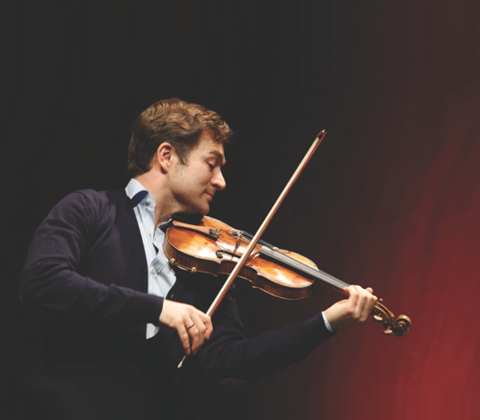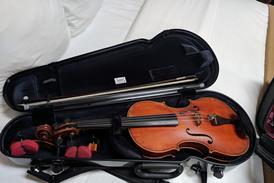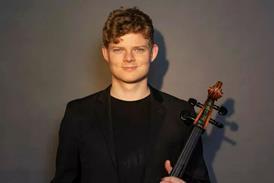The French soloist talks to Tom Stewart about developing perspective, what teaching has taught him and how he learns from his own students

Renaud Capuçon
I wish I had started to teach sooner. Helping my students look at their problems in a different way, I can hear myself repeating advice I was given 20 years ago. I’m 43 now and for the five years I’ve been teaching I’ve been digging around inside my brain and revealing information I’d forgotten was there. Some of it didn’t necessarily make sense at the time but revisiting it has helped me understand its worth.
Adapting what I learnt in order to take account of someone’s physical characteristics – the size of their hands, for example – is another route to seeing things afresh, and I’m always thanking my students for helping me to make progress myself.
My teacher Veda Reynolds took a global view of what it meant to be a violinist. She was a quartet player who studied with Flesch, Galamian, Enescu and Zimbalist. I began to study with her when I was 8 years old and stayed with her until I was 20.
She had a very open mind, always challenging her own preconceptions as well as those of her pupils. She would never just tell me which fingering I should use, for example. Instead she’d get me to play through two or three alternatives and choose which one I felt worked best. Learning at only 10 or 11 that there isn’t always one correct way to do something was very inspiring.
Apart from this, she said that to be relaxed with the instrument was the most important thing. Playing the violin puts the body into an unnatural shape – you would never cross the road in that position – but thanks to her I could practise for hours on end without trouble. We would spend whole lessons putting a little more weight on my left foot, and then on my right, trying to work out the perfect way to balance my body.
I played the Beethoven Concerto for Daniel Barenboim when I was about 20 years old. He was accompanying me on the piano and seemed to have so much perspective on the music that I had the sense that he was looking down on the performance from ten storeys up. He could signal which direction I should take because he could see which way we should go.
Everyone starts off on the ground floor, but with a bit of luck we move upwards as time goes on. It’s like being 20 and introducing your girlfriend to your parents for the first time. You might think you’re in love, but with their experience your parents can see things for what they really are.
Better perspective doesn’t necessarily correlate with age, though. For some people it develops very quickly and for others it never comes at all, but if you treat life as one long learning process it will be just that.


































No comments yet